
Timeless Charms of the Old City of Acre
Step into the Old City of Acre, a UNESCO World Heritage site that offers a seamless blend of history, culture, and modern-day vibrancy. This ancient port city, located on the northern coast of Israel, is a treasure trove of diverse influences, from the Crusaders to the Ottomans, each leaving a unique mark on its stunning architecture and winding alleyways. Wander through the narrow streets and you'll discover a myriad of historic sites, including the Knights' Halls, the Al-Jazzar Mosque, and the Templar Tunnel. Every corner of Acre tells a story, whether it's the bustling marketplaces filled with aromatic spices and hand-crafted goods, or the serene Mediterranean coastline offering picturesque views and a chance to unwind. Food lovers will find Acre a culinary delight, with a variety of local eateries serving up traditional Middle Eastern dishes. Don't miss the chance to dine at one of the waterfront restaurants, where you can enjoy fresh seafood while gazing at the sunset over the ancient harbor. Acre's rich tapestry of history and culture makes it a must-visit destination for any traveler exploring Israel.
Local tips in Old City of Acre
- Visit the Knights' Halls early in the morning to avoid the crowds.
- Wear comfortable shoes; the cobblestone streets can be uneven.
- Don't miss the local markets for unique souvenirs and authentic Middle Eastern spices.
- Try the fresh seafood at the waterfront restaurants for an authentic dining experience.
- Check out the sunset views from the ancient harbor for a perfect end to your day.
Timeless Charms of the Old City of Acre
Step into the Old City of Acre, a UNESCO World Heritage site that offers a seamless blend of history, culture, and modern-day vibrancy. This ancient port city, located on the northern coast of Israel, is a treasure trove of diverse influences, from the Crusaders to the Ottomans, each leaving a unique mark on its stunning architecture and winding alleyways. Wander through the narrow streets and you'll discover a myriad of historic sites, including the Knights' Halls, the Al-Jazzar Mosque, and the Templar Tunnel. Every corner of Acre tells a story, whether it's the bustling marketplaces filled with aromatic spices and hand-crafted goods, or the serene Mediterranean coastline offering picturesque views and a chance to unwind. Food lovers will find Acre a culinary delight, with a variety of local eateries serving up traditional Middle Eastern dishes. Don't miss the chance to dine at one of the waterfront restaurants, where you can enjoy fresh seafood while gazing at the sunset over the ancient harbor. Acre's rich tapestry of history and culture makes it a must-visit destination for any traveler exploring Israel.
Iconic landmarks you can’t miss
Knights' Halls, Old Akko
Explore the Knights' Halls in Old Akko, a historical gem that unveils the legacy of the Crusaders amidst stunning architecture and scenic views.
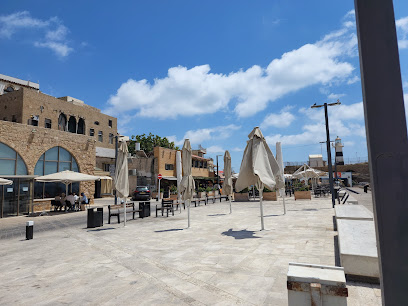
The Old City
Discover the enchanting Old City of Acre, a UNESCO World Heritage Site, where history and culture blend seamlessly in a vibrant coastal setting.
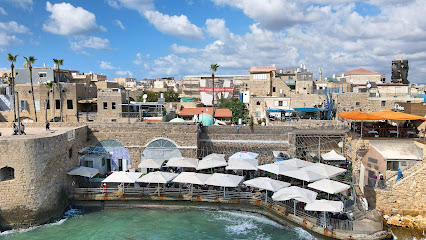
Treasures in the Walls Museum
Explore the rich cultural heritage of Acre at Treasures in the Walls Museum, where history comes alive through engaging exhibits and stunning architecture.
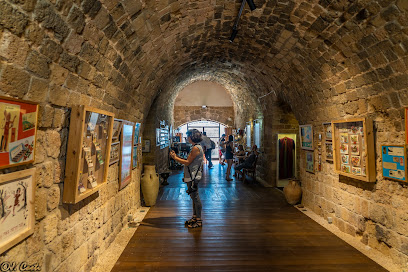
Citadel of Acre
Discover the rich history and stunning architecture of the Citadel of Acre, a UNESCO World Heritage Site and a must-visit for every traveler to Israel.
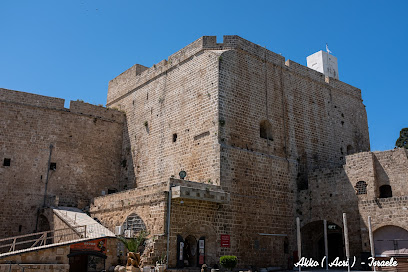
Akko Old City Waterfront Wall
Discover the historical splendor of Akko Old City Waterfront Wall, a UNESCO site blending culture, architecture, and breathtaking Mediterranean views.
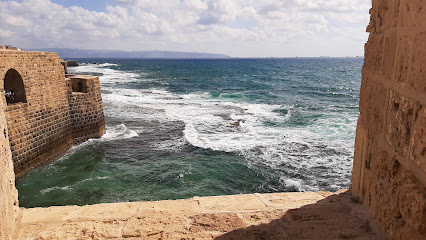
Walls of Acre
Discover the historical marvels and scenic beauty of the Walls of Acre, a UNESCO World Heritage Site rich in culture and ancient architecture.
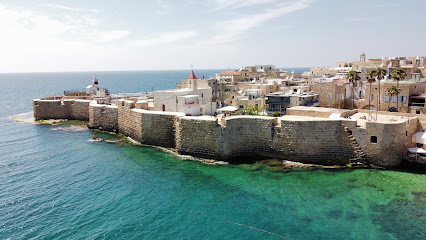
Old Akko Walls
Discover the historic Old Akko Walls, a UNESCO World Heritage site, where ancient fortifications meet breathtaking Mediterranean views in Acre, Israel.
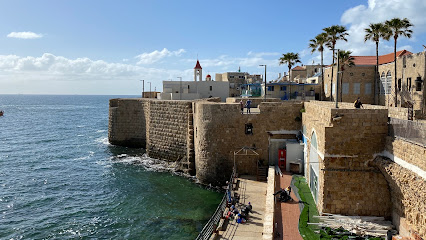
Argaman Beach
Experience the breathtaking beauty and historical significance of Argaman Beach in Acre, a perfect blend of relaxation and adventure along the Mediterranean coast.
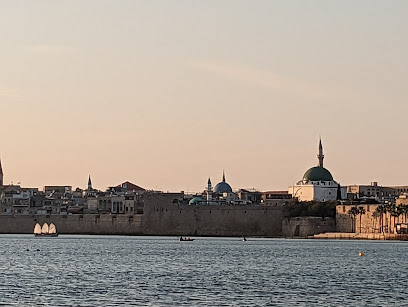
The Hospitaller Fortress
Explore the Hospitaller Fortress in Acre, a UNESCO World Heritage Site that unveils the history of the Knights of St. John and medieval architecture.
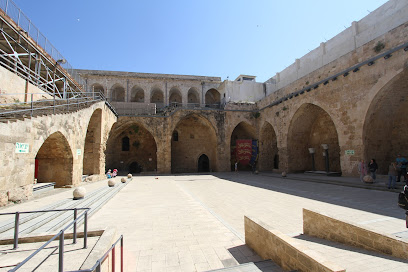
اسوار عكا
Discover the rich history and stunning coastal views of Acre, a UNESCO World Heritage site that showcases a blend of cultures and timeless architecture.
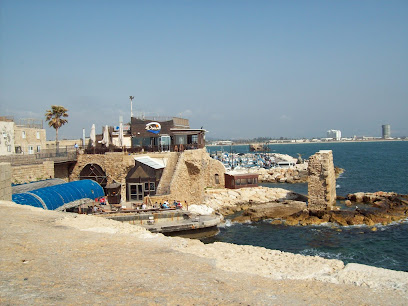
Essential places to dine
Uri Buri
Experience exquisite seafood at Uri Buri in Acre - where tradition meets innovation amidst stunning Mediterranean views.
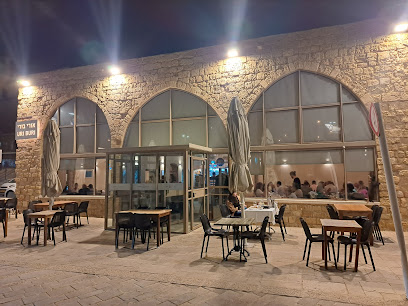
Abu Christo
Experience authentic Middle Eastern cuisine at Abu Christo in Kafr Yasif - where tradition meets flavor in every dish.
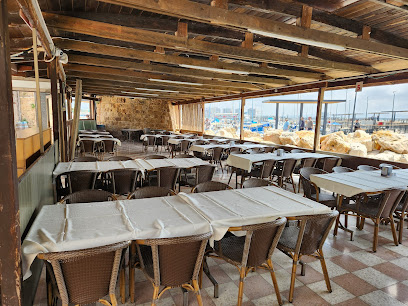
Roots רותס
Experience authentic kosher cuisine at Roots רותס in Acre - where tradition meets taste for an unforgettable dining experience.
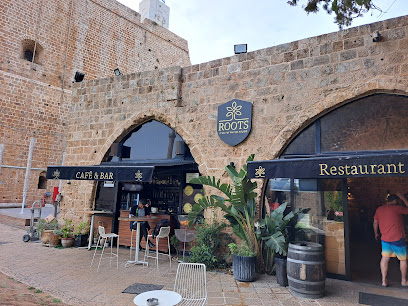
The Bread And Fish
Experience fresh seafood and local delicacies at The Bread And Fish in Acre – where every meal tells a story.
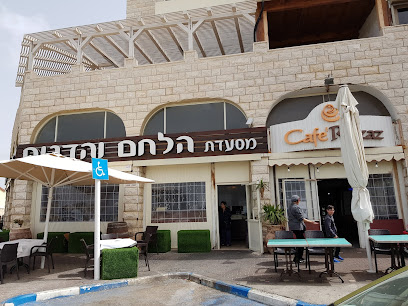
Panorama Restaurant Acre
Discover culinary delights and stunning sea views at Panorama Restaurant in Acre – an unforgettable dining experience by the Mediterranean.
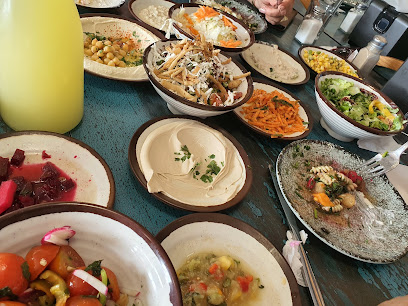
Siran Restaurant
Savor authentic Israeli flavors at Siran Restaurant in Acre, where every dish tells a story and every meal is an unforgettable experience.
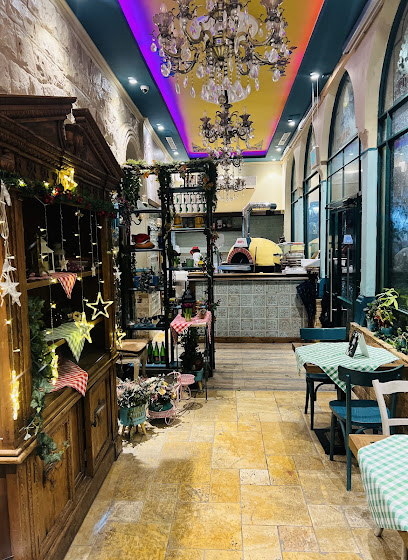
Sama
Experience the vibrant flavors of Acre at Sama Gastropub - where local tradition meets modern culinary artistry.
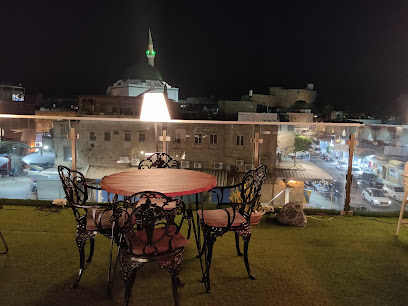
Hummus Al-Abed Abu Hamid
Savor authentic Middle Eastern flavors at Hummus Al-Abed Abu Hamid in Acre, known for its unique and delicious hummus under the historic Lighthouse.
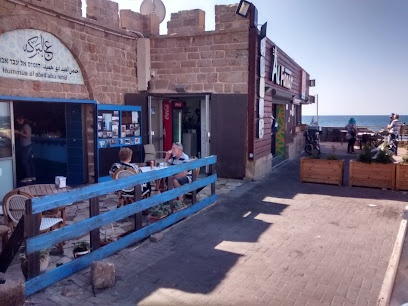
Elmoalem Restaurant
Experience authentic local cuisine at Elmoalem Restaurant in Acre – where tradition meets taste amidst stunning historical surroundings.
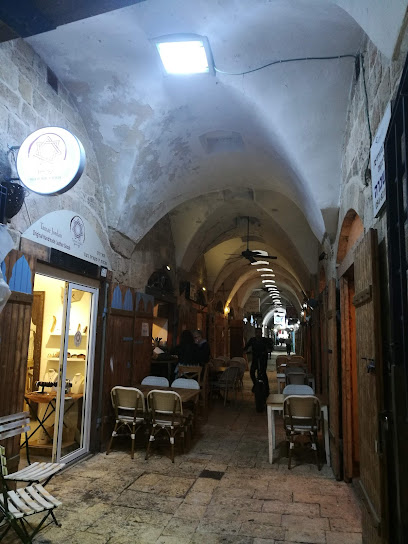
Ouda restaurant
Discover authentic Israeli cuisine at Ouda Restaurant in Acre – where tradition meets flavor amidst stunning Mediterranean views.
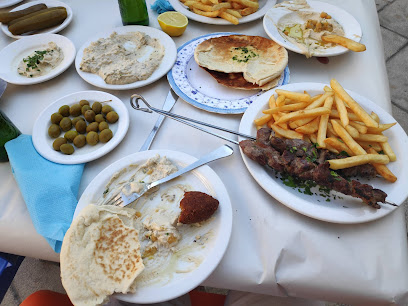
Markets, malls and hidden boutiques
The White Market
Experience local culture and vibrant shopping at The White Market in Acre, where unique shops and delicious eateries await.
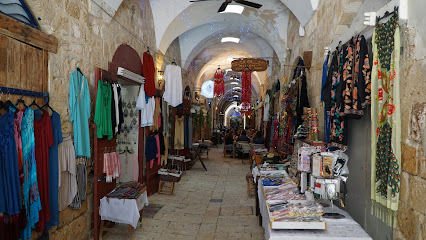
Duck You Akko
Discover a whimsical toy store in Acre, where duck-themed fun and delightful treasures await every child and family.
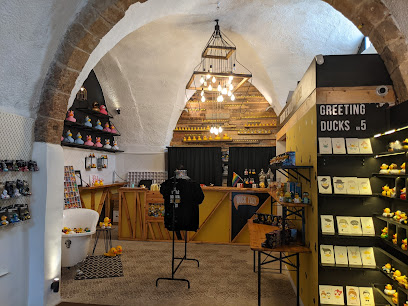
בצק סוכר
Explore the unique baking supplies at בצק סוכר in Acre, perfect for every baking enthusiast looking to create delicious Israeli treats.
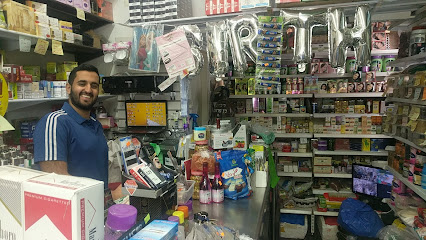
עיצוב בפרי
Explore Acre's freshest produce at 'עיצוב בפרי', where vibrant flavors and local culture come together in a delightful shopping experience.
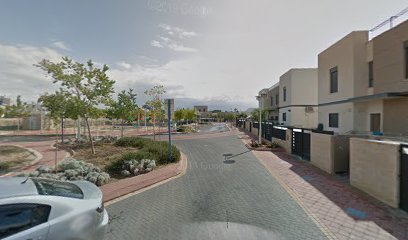
תכשיטים ומזכרות בולוס אליאס
Explore Boulos Elias in Acre for exquisite jewelry and memorable souvenirs that capture the spirit of Israel's rich culture.
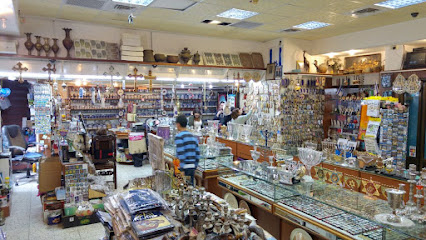
New
Explore Acre's gift shop for unique souvenirs and local crafts that capture the essence of this historic city.
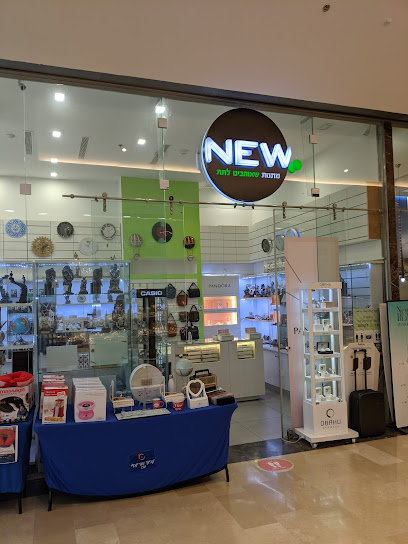
the gift boutique
Explore the charm of The Gift Boutique in Acre, where unique souvenirs and local crafts await every traveler looking for memorable treasures.
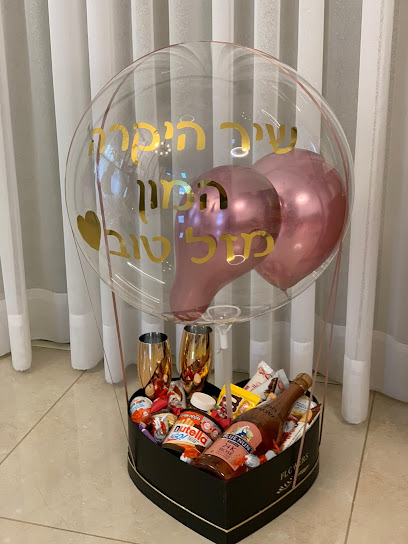
שלי'ס
Explore the charm of Acre at שלי'ס Gift Shop, where unique souvenirs and local crafts await to enrich your travel experience.
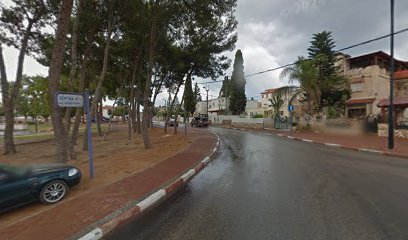
כל בו רירי
Discover unique fashion at the charming dress store in Acre, where local styles meet the beauty of this historic coastal city.
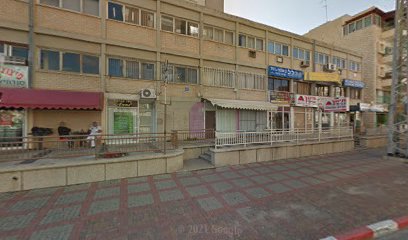
טדי ברס ישראל | TEDDY BEARS ISRAEL
Explore the enchanting world of Teddy Bears Israel, where nostalgia and whimsy come together in a delightful collection of plush toys.

Essential bars & hidden hideouts
Panorama Restaurant Acre
Experience the perfect blend of coastal views and local flavors at Panorama Restaurant in Acre, a must-visit culinary destination.
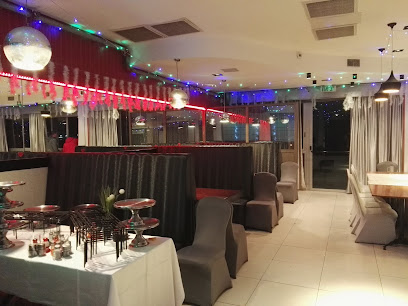
Sama
Savor exquisite flavors at Sama, the premier gastropub in Acre, offering a stunning rooftop view of the historic Old City.
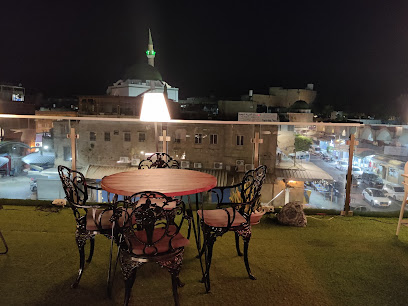
Hummus Al-Abed Abu Hamid
Indulge in the authentic flavors of Israel at Hummus Al-Abed Abu Hamid, a culinary gem in Acre's historic old city.
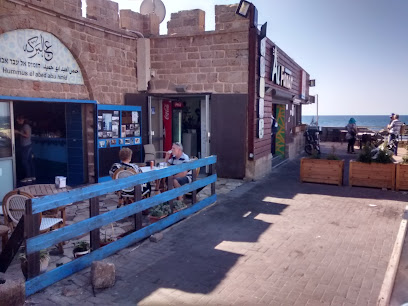
Marsa Bar מרסא בר
Experience the vibrant nightlife at Marsa Bar in Acre, where stunning sea views and handcrafted cocktails create unforgettable moments.
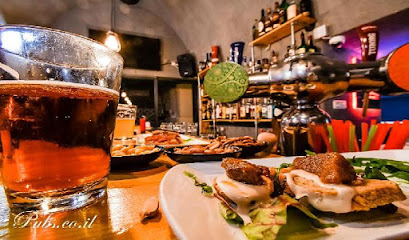
BAR 11
Experience the vibrant nightlife at BAR 11 in Acre, where live music and a lively atmosphere create unforgettable nights.

Ouda restaurant
Experience the authentic taste of Acre at Ouda Restaurant, where local flavors and warm hospitality create unforgettable dining moments.
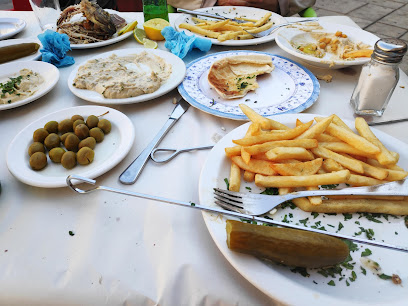
הכנאפה של קשאש
Indulge in the best Kanafeh in Acre at Kenafeh of Kashash, where tradition meets sweetness in every bite.
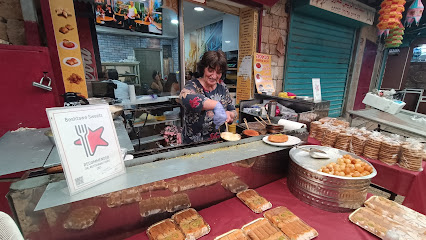
ZEINA BAR
Discover the vibrant culinary scene at Zeina Bar in Acre, where traditional flavors meet modern dining in an unforgettable atmosphere.
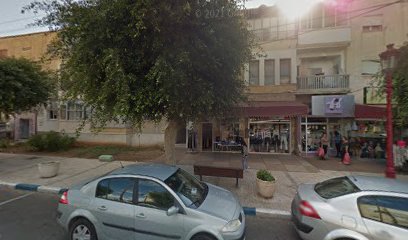
Tamar's Bar @ Akotika
Discover Tamar's Bar @ Akotika in Acre: a vibrant spot for drinks and local culture amidst the historic charm of the city.
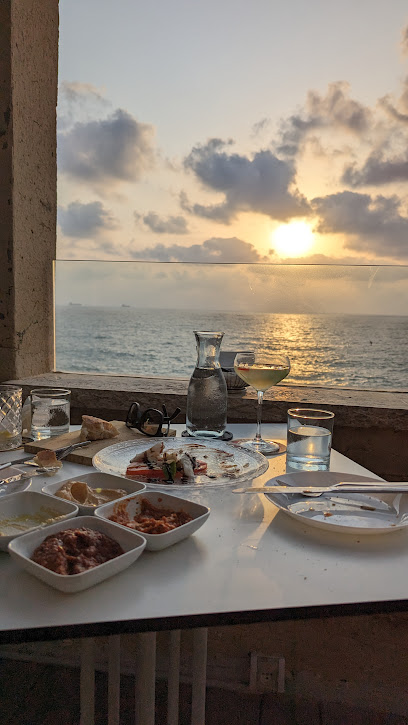
Сопрт зал
Discover the ultimate sports fan experience at Acre's lively sports bar, where excitement meets local culture in a vibrant atmosphere.
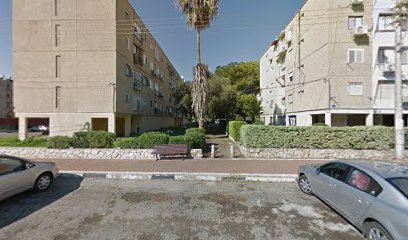
Local Phrases
-
- Helloשלום
[Shalom] - Goodbyeלהתראות
[Lehitraot] - Yesכן
[Ken] - Noלא
[Lo] - Please/You're welcomeבבקשה
[Bevakasha] - Thank youתודה
[Toda] - Excuse me/Sorryסליחה
[Slicha] - How are you??איך אתה
[Eich Ata] - Fine. And you?טוב. ואתה?
[Tov. Ve'ata?] - Do you speak English?האם אתה מדבר אנגלית?
[Ha'Im Ata Medaber Anglit?] - I don't understandאני לא מבין
[Ani Lo Mevin]
- Helloשלום
-
- I'd like to see the menu, pleaseאני רוצה לראות את התפריט, בבקשה
[Ani Rotzeh La'rot Et Ha'tafrir, Bevakasha] - I don't eat meatאני לא אוכל בשר
[Ani Lo Ochel Basar] - Cheers!לחיים!
[Lechayim!] - I would like to pay, pleaseאני רוצה לשלם, בבקשה
[Ani Rotzeh Leshalem, Bevakasha]
- I'd like to see the menu, pleaseאני רוצה לראות את התפריט, בבקשה
-
- Help!עזרה!
[Ezra!] - Go away!לך לעברך!
[Lech Le'abarech!] - Call the Police!קרא למשטרה!
[Kara La'mishtara!] - Call a doctor!קרא לרופא!
[Kara La'rofe!] - I'm lostאני אבוד
[Ani Avud] - I'm illאני חולה
[Ani Choleh]
- Help!עזרה!
-
- I'd like to buy...אני רוצה לקנות...
[Ani Rotzeh Liknot...] - I'm just lookingאני רק רואה
[Ani Rak Ro'eh] - How much is it?כמה עולה זה?
[Kama Oleh Zeh?] - That's too expensiveזה יקר מדי
[Zeh Yakar M'odi] - Can you lower the price?אפשר להוריד את המחיר?
[Efshar Lehored Et Ha'machir?]
- I'd like to buy...אני רוצה לקנות...
-
- What time is it?מה השעה?
[Ma Ha'sha'a?] - It's one o'clockהשעה אחת
[Ha'sha'a Achat] - Half past (10)חצי (עשר)
[Chatzi (Eser)] - Morningבוקר
[Boker] - Afternoonצהריים
[Tzohorayim] - Eveningערב
[Erev] - Yesterdayאתמול
[Etmol] - Todayהיום
[Ha'yom] - Tomorrowמחר
[Mahar] - 1אחת
[Achat] - 2שתיים
[Shtayim] - 3שלוש
[Shalosh] - 4ארבע
[Arba] - 5חמש
[Chamesh] - 6שש
[Shesh] - 7שבע
[Sheva] - 8שמונה
[Shmona] - 9תשע
[Tisha] - 10עשר
[Eser]
- What time is it?מה השעה?
-
- Where's a/the...?איפה נמצא...
[Eifo Nimtza...] - What's the address?מה הכתובת?
[Ma Ha'ktovet?] - Can you show me (on the map)?אתה יכול להראות לי (על המפה)?
[Ata Yachol Lehare'ot Li (Al Ha'mapa)?] - When's the next (bus)?מתי האוטובוס הבא?
[Matay Ha'otobus Ha'ba?] - A ticket (to ....)כרטיס (ל...)
[Kartis (L...)]
- Where's a/the...?איפה נמצא...
History of Old City of Acre
-
The Old City of Acre's history dates back to ancient times, with its origins as a Phoenician port city known as Akko. Established around 3000 BCE, it was an important center for trade and commerce in the Eastern Mediterranean. The strategic location of Acre made it a vital port for the Phoenicians, who were renowned for their maritime prowess and trade networks.
-
Acre became a significant stronghold during the Crusades in the 12th century. Following the capture by the Crusaders in 1104, it served as the capital of the Kingdom of Jerusalem and a key military and trade hub. The construction of impressive fortifications, including the famous Crusader Citadel, marked this period, with the city thriving as a melting pot of cultures and religions.
-
In 1517, Acre fell under Ottoman rule, leading to a new era of development. The Ottomans significantly enhanced the city's fortifications and infrastructure. Notable structures from this period include the Al-Jazzar Mosque and the impressive walls that still stand today. The Old City flourished as a center of administration and trade, reflecting the cultural and architectural influences of the Ottoman Empire.
-
During the British Mandate from 1920 to 1948, Acre underwent various changes aimed at modernization. The British invested in infrastructure and expanded the city's port facilities. However, the period was also marked by growing tensions between Jewish and Arab communities, leading to significant historical events, including the establishment of the State of Israel in 1948, which altered the demographic and cultural landscape of Acre.
-
In recent decades, Acre has been recognized for its rich cultural heritage, resulting in efforts to preserve its historical sites. The Old City was declared a UNESCO World Heritage Site in 2001, emphasizing its importance as a crossroads of civilizations. Today, it attracts tourists who come to explore its ancient streets, vibrant markets, and diverse cultural offerings, showcasing the area's complex history and multicultural identity.
Old City of Acre Essentials
-
The Old City of Acre is easily accessible from other neighborhoods in Acre. If you are arriving from the main bus station in Acre, local buses (lines 1 and 2) will take you directly to the Old City. Alternatively, taxis are available and are a convenient option for a quick trip. If you are traveling from Haifa, there are frequent trains to Acre Station, followed by a short taxi ride or a 30-minute walk to reach the Old City.
-
The Old City of Acre is compact and pedestrian-friendly, making it ideal for exploring on foot. Narrow alleys and streets are best navigated by walking. Bicycles can also be rented from local shops if you wish to explore the coastal area. While there are no trains within the Old City, local buses connect to other parts of Acre. Taxis are readily available for longer distances or to return to the bus station.
-
Old City of Acre is generally safe for tourists, but standard precautions should be taken. Avoid poorly lit areas at night and keep personal belongings secure. While most areas are safe, it's advisable to be cautious around the outskirts of the Old City, especially near the port area at night, as petty crime can occasionally occur. Always stay aware of your surroundings.
-
In case of an emergency, dial 100 for police, 101 for medical assistance, and 102 for fire services. The nearest hospital is located a short taxi ride away in Acre. It’s recommended to have travel insurance that covers emergency situations. There are pharmacies in the Old City for minor health issues, and most locals can direct you to the nearest hospital or clinic if needed.
-
Fashion: Do dress modestly, especially when visiting religious sites. Avoid revealing clothing. Religion: Do respect local customs and traditions. When entering religious sites, dress conservatively and be prepared to cover your head if necessary. Public Transport: Do be courteous, and give up your seat for the elderly. Don’t eat or drink on public transport. Greetings: Do greet locals with a friendly 'Shalom' and a smile. Eating & Drinking: Do try local dishes at restaurants, and accept food offerings graciously. Don’t waste food, as it is considered disrespectful.
-
To truly experience the Old City of Acre like a local, visit the bustling markets, where you can find fresh produce and traditional foods. Engage with local vendors and ask for recommendations on what to try. Attend a local cultural event or festival if your visit coincides with one. Explore beyond the main tourist sites; hidden gems like local art galleries and small cafés provide an authentic experience. For a unique perspective, consider a guided tour that includes stories of Acre's rich history.
Nearby Cities to Old City of Acre
-
Things To Do in Acre
-
Things To Do in Nahariya
-
Things To Do in Haifa
-
Things To Do in Rosh HaNikra
-
Things To Do in Nazareth
-
Things To Do in Safed
-
Things To Do in Zikhron Ya'akov
-
Things To Do in Tyre
-
Things To Do in Tiberias
-
Things To Do in Caesarea
-
Things To Do in Hadera
-
Things To Do in Beit She'an
-
Things To Do in Umm Qais
-
Things To Do in Marjayoun
-
Things To Do in Netanya













